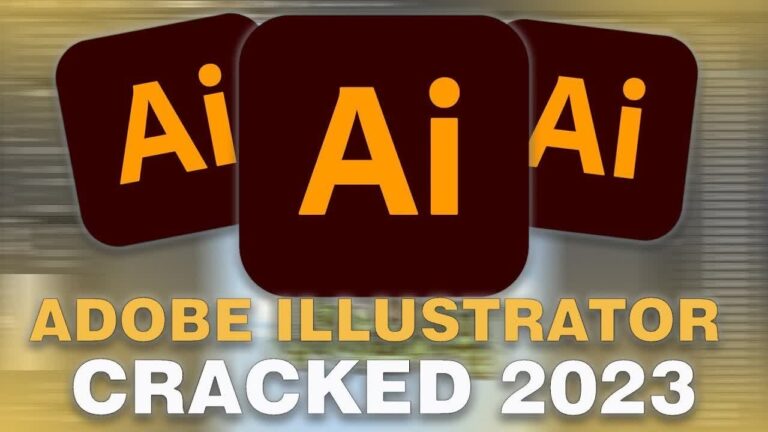Become a Bridge Inspector: Job Description & Salary
Bridge Inspector Job Description
A Bridge Inspector is responsible for conducting inspections and assessments of bridges to ensure their safety and structural integrity. They inspect various types of bridges, including highway bridges, pedestrian bridges, and railway bridges. Their main objective is to identify any potential issues or structural weaknesses that may pose a risk to public safety.
The duties of a Bridge Inspector include conducting visual inspections, evaluating bridge conditions, and documenting any defects or damages. They use specialized equipment such as drones, cameras, and measuring devices to assess the structural integrity of bridges. They also review design plans and specifications to ensure compliance with safety standards and regulations.
Bridge Inspectors work closely with engineers and construction teams to provide recommendations for repairs, maintenance, or replacement of bridges. They prepare detailed reports and maintain accurate records of inspections and findings. They may also be required to present their findings to government agencies, contractors, or other stakeholders.
Bridge Inspector Salary
The salary of a Bridge Inspector can vary depending on factors such as experience, education, location, and the size of the organization. According to the Bureau of Labor Statistics, the median annual wage for Bridge Inspectors was $63,100 as of May 2020. The lowest 10% earned less than $38,570, while the highest 10% earned more than $99,860.
Bridge Inspectors may also receive additional benefits such as health insurance, retirement plans, and paid time off. Some organizations may offer opportunities for professional development and advancement within the field.
In conclusion, a Bridge Inspector plays a crucial role in ensuring the safety and functionality of bridges. They conduct inspections, assess structural integrity, and provide recommendations for maintenance or repairs. The salary of a Bridge Inspector can be competitive, and there are opportunities for growth and advancement within the field.

Bridge Inspector Job Description Template
Bridge Inspector Job Description
A bridge inspector is responsible for inspecting and assessing the condition of bridges to ensure their structural integrity and safety. They play a crucial role in identifying any potential hazards or maintenance needs, which helps in preventing accidents and ensuring the functionality of bridges.
Bridge inspectors need to have a strong understanding of engineering principles and knowledge of bridge construction techniques. They must be able to interpret blueprints and design plans to assess the structural soundness of bridges. Inspectors also use specialized equipment such as drones, cameras, and measuring tools to conduct thorough examinations.
The main responsibilities of a bridge inspector include conducting visual inspections of bridge components, such as beams, columns, and decks, and assessing their conditions. They also inspect the bridge’s foundation, joints, and connections to identify any signs of deterioration or damage. Inspectors document their findings and prepare detailed reports, which include recommendations for repairs or maintenance.
Safety is a paramount concern for bridge inspectors, as they often work in hazardous environments. They must adhere to strict safety protocols and use personal protective equipment to minimize risks. Bridge inspectors may also collaborate with engineers, construction workers, and government officials to ensure compliance with regulations and standards.
In summary, the role of a bridge inspector is essential for maintaining the safety and functionality of bridges. Their expertise and attention to detail help identify potential issues, allowing for timely repairs and ensuring the longevity of these critical infrastructure components.
Bridge Inspector Responsibilities
- Inspecting bridges for any signs of damage, deterioration, or structural issues.
- Performing visual assessments and measurements of various bridge components, including beams, columns, and foundations.
- Checking for cracks, corrosion, loose bolts, or any other signs of wear and tear.
- Conducting non-destructive testing methods such as ultrasound, magnetic particle testing, or X-rays to detect hidden defects.
- Reviewing bridge maintenance records and documentation to ensure compliance with safety standards and regulations.
- Preparing detailed inspection reports, including photographs and diagrams, that highlight any identified issues or concerns.
- Providing recommendations for necessary repairs, maintenance, or rehabilitation work to address identified problems.
- Collaborating with engineers, architects, and other professionals to develop repair plans and strategies.
- Monitoring ongoing bridge construction projects to ensure compliance with design specifications and safety standards.
- Attending meetings and consultations with stakeholders to discuss inspection findings, recommendations, and project progress.
Bridge Inspector Requirements
- Education: A bachelor’s degree in civil engineering or a related field is typically required to become a bridge inspector.
- Experience: Some employers may require several years of experience in bridge design, construction, or inspection.
- Licensure: A professional engineering license is often required for bridge inspectors, which involves passing the Fundamentals of Engineering (FE) exam and the Principles and Practice of Engineering (PE) exam.
- Knowledge: Bridge inspectors must have a strong understanding of engineering principles, construction techniques, and bridge design standards.
- Physical fitness: Bridge inspectors must be able to climb ladders, work at heights, and perform physical tasks as necessary to inspect bridges.
- Attention to detail: Inspectors must have excellent attention to detail to identify potential safety hazards, structural issues, or maintenance needs.
- Communication skills: Bridge inspectors must be able to effectively communicate their findings and recommendations to engineers, construction crews, and other stakeholders.
- Computer skills: Proficiency in using computer software and tools for data analysis, reporting, and documentation is important for bridge inspectors.
- Continuing education: Bridge inspectors may be required to participate in ongoing training and professional development to stay updated on industry standards and best practices.
How Much Does A Bridge Inspector Make?
Bridge Inspector Salary
| Experience Level | Salary Range |
|---|---|
| Entry Level | $40,000 – $60,000 |
| Intermediate Level | $60,000 – $80,000 |
| Experienced Level | $80,000 – $100,000 |
| Senior Level | $100,000 – $150,000 |
Bridge inspectors play a crucial role in ensuring the safety and integrity of bridges. Their salaries vary based on their experience level. Entry-level bridge inspectors can expect to earn between $40,000 and $60,000 per year. As they gain more experience, their salaries increase. Intermediate-level inspectors typically earn between $60,000 and $80,000, while experienced inspectors can make between $80,000 and $100,000 annually. Senior-level bridge inspectors, with extensive experience and expertise, can earn salaries ranging from $100,000 to $150,000 or more. These salary ranges may also vary based on factors such as location and the size of the projects being inspected.
Bridge Inspector Salaries by Country
Top Paying Countries for Bridge Inspectors
| Country | Average Salary (USD) |
|---|---|
| United States | $68,000 |
| Canada | $61,000 |
| Australia | $57,000 |
| United Kingdom | $51,000 |
| Germany | $48,000 |
Bridge inspectors play a vital role in ensuring the safety and integrity of bridges. They are responsible for conducting inspections, identifying any structural issues, and recommending necessary repairs or maintenance. The salaries of bridge inspectors can vary greatly depending on the country they work in. According to the data, the top paying countries for bridge inspectors are the United States, Canada, Australia, United Kingdom, and Germany. These countries offer higher average salaries compared to others, making them attractive destinations for bridge inspectors seeking better compensation. However, it’s important to note that factors such as experience, qualifications, and demand for bridge inspectors also play a significant role in determining individual salaries within each country.
A video on the topic Bridge İnspector
Interview Questions for Bridge Inspector
1. What is the role of a Bridge Inspector?
A Bridge Inspector is responsible for inspecting bridges and other infrastructure to ensure they are safe and structurally sound.
2. What qualifications or certifications are required to become a Bridge Inspector?
Qualifications may vary by country, but typically a Bachelor’s degree in civil engineering or a related field is required. Additionally, certifications such as the Certified Bridge Inspector (CBI) certification offered by the National Society of Professional Engineers (NSPE) can be beneficial.
3. What are the key skills needed to be a successful Bridge Inspector?
Some of the key skills include strong knowledge of civil engineering principles, attention to detail, excellent problem-solving abilities, good communication skills, and the ability to work at heights.
4. What are the main responsibilities of a Bridge Inspector?
The main responsibilities include conducting bridge inspections, identifying any structural deficiencies or safety concerns, documenting findings in detailed reports, recommending necessary repairs or maintenance, and coordinating with engineers and construction teams.
5. How do you ensure safety while performing bridge inspections?
Safety is a top priority during bridge inspections. Bridge Inspectors wear appropriate personal protective equipment (PPE), follow safety protocols, and use specialized equipment such as harnesses and scaffolding to ensure their safety while working at heights.
6. Can you describe the typical process of conducting a bridge inspection?
The process typically involves visual inspections, measurements, and non-destructive testing techniques to assess the condition of the bridge. Inspectors may use tools such as binoculars, cameras, and specialized equipment like ultrasound devices or ground-penetrating radar to gather data.
7. How do you handle situations where a bridge is found to be structurally deficient?
If a bridge is found to be structurally deficient, the Bridge Inspector will document the findings and recommend appropriate repairs or maintenance. They may work with engineers and construction teams to develop plans for repairs and ensure the necessary actions are taken to address the deficiencies.
8. What are some challenges faced by Bridge Inspectors in their work?
Some challenges include working in adverse weather conditions, working at heights, accessing hard-to-reach areas, and dealing with potential safety hazards. Additionally, the need to constantly stay updated with new inspection techniques and regulations can also be a challenge.
9. How do you ensure the accuracy and reliability of your inspection reports?
To ensure accuracy and reliability, Bridge Inspectors follow standardized inspection procedures, use precise measurement tools, and document their findings in detailed reports. They may also review their reports with senior inspectors or engineers for quality control.
10. Can you discuss the importance of bridge inspections for public safety?
Bridge inspections are crucial for public safety as they help identify any structural deficiencies or safety concerns that could lead to accidents or bridge failures. Regular inspections and timely repairs ensure that bridges remain safe for public use and prevent potential disasters.
The Best Universities For The Bridge Inspector Profession.
- University of Delaware
- University of Texas at Arlington
- University of Kansas
- University of Florida
- Virginia Tech
- University of Maryland
- University of Minnesota
- University of Missouri
- University of Washington
- Oregon State University






